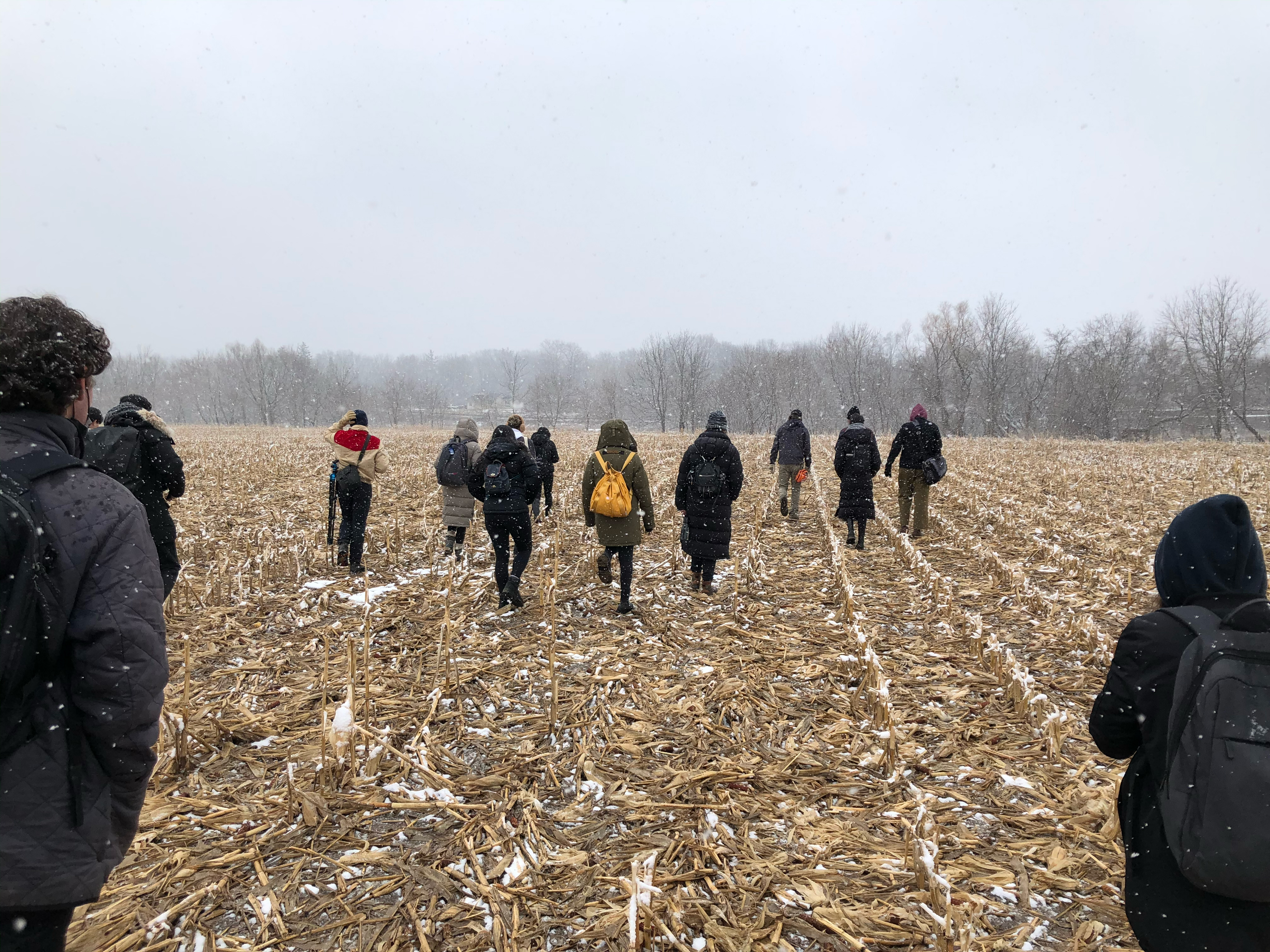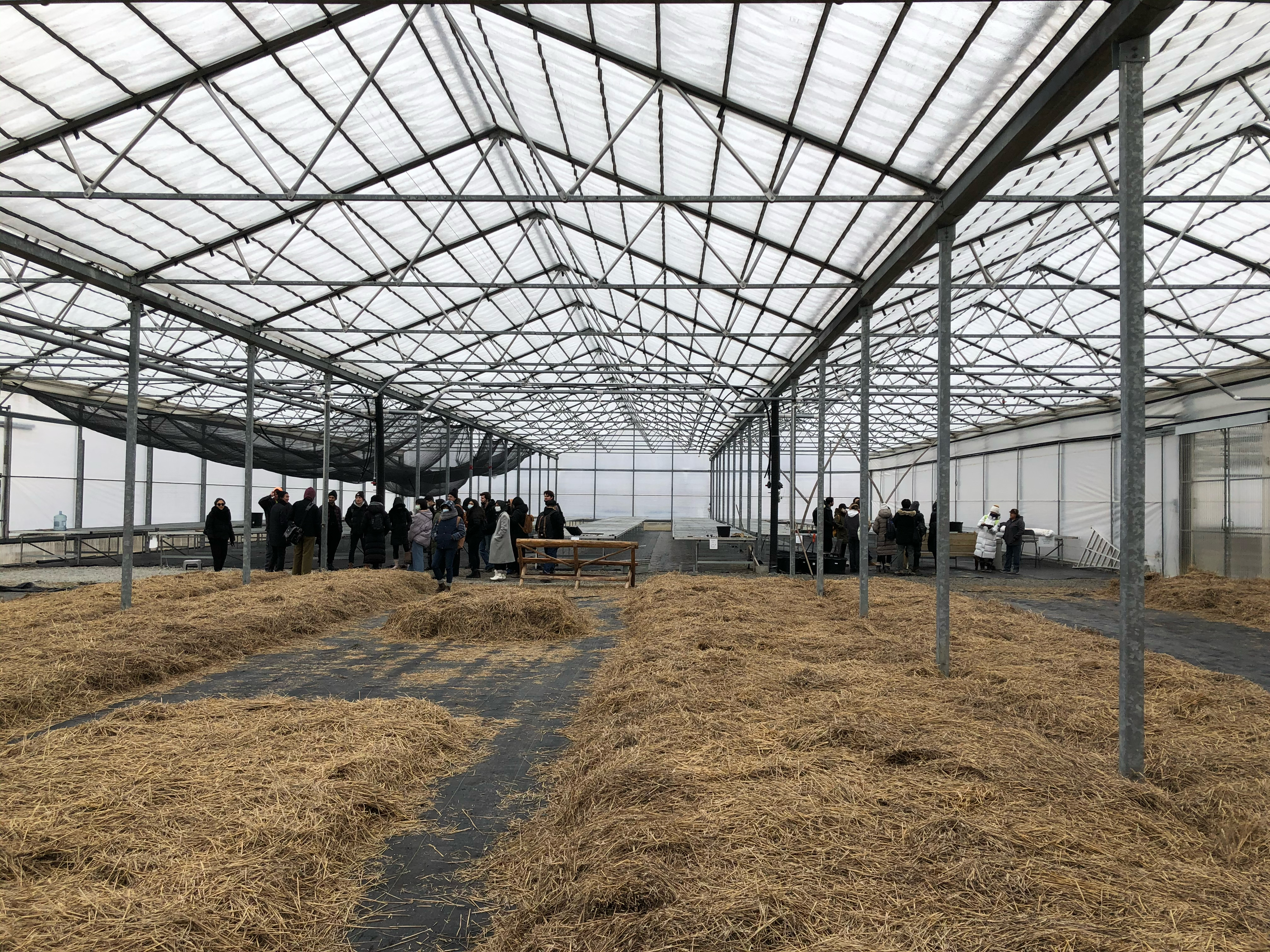
09.02.23 - Architecture course highlighting Indigenous storywork recognized with an ACSA award
The Daniels Faculty’s Adrian Phiffer (Assistant Professor, Teaching Stream) has been awarded a 2023 Architectural Education Award by the Association of Collegiate Schools of Architecture (ACSA).
The award, in the category of Creative Achievement, recognizes Design Studio 2: Site, Matter, Ecology, and Indigenous Storywork, the second studio in the Faculty’s Master of Architecture core studios sequence.
Developed in partnership with a team of Indigenous advisers, including the citizens of the Ho:dinösöni/Six Nations of the Grand River, Design Studio 2 encompasses two interconnected design projects interwoven with workshops illuminating Indigenous ways of being, ways of knowledge and traditional design practises.
The first project tasks students with imagining a new Haudenosaunee Centre of Excellence where the modest building currently housing the Woodland Cultural Centre sits in Brantford, while the second “advances the explorations from Project 1 at the scale of a building via the design of a Seedbank at Kayanase, on the Six Nations of the Grand River land.”
The syllabus was developed in collaboration with alumnus and co-instructor James Bird (Knowledge Keeper of the Dënesųlįné and Nêhiyawak Nations and a residential school survivor), the late Alfred Keye (Lead Faith Keeper at the Seneca Longhouse), Amos Key Jr. (Faith Keeper of the Longhouse at Six Nations of Grand River Territory and a member of the Daniels Faculty’s First Peoples Leadership Advisory Group), Janis Monture (Executive Director of the Woodland Cultural Centre) and Patricia Deadman (Curator at the Woodland Cultural Centre).
Other contributors to the course include Carole Smith (Administrative Team Lead, Kayanase Ecological Restoration Centre), Kerdo Deer (Cultural Coordinator, Kayanase Ecological Restoration Centre), Nina Hunt (Junior Botanist, Kayanase Ecological Restoration Centre), Erin Monture (CEO, Grand River Employment and Training Inc.) and Matthew Hickey (Partner at Two Row Architect).

In addition, Phiffer cites the “incredible support” offered by Wei-Han Vivian Lee, Director of the Faculty’s Master of Architecture program.
A “concrete response” to Answering the Call: Wecheehetowin, the University of Toronto’s follow-up to the report by Canada’s Truth and Reconciliation Commission, Design Studio 2 specifically addresses Call to Action No. 17, which proposes the integration of “significant Indigenous curriculum content” in all of U of T’s divisions by 2025.
Among the stated course objectives are engaging with Indigenous worldviews, exploring the concept of relational accountability, and understanding the meaning of contextualizing and re-contextualizing.
“The final studio projects are developed in response to real site, program and cultural demands,” a course précis notes. “The results make an impact in the life of the community.”
Based in Washington, D.C., ACSA was founded in 1912 by 10 charter members and now represents more than 200 schools in the United States and Canada.
Its Architectural Education Awards, handed out annually, are bestowed in a range of categories, with the Creative Achievement Awards recognizing specific initiatives in teaching, design, scholarship, research or service that advance architectural education.
Images 1 and 2: Design Studio 2 students conduct a site visit at Kayanase, on the Six Nations of the Grand River land, as part of their two-project coursework. The second project in the studio involved designing a seedbank for the site.

